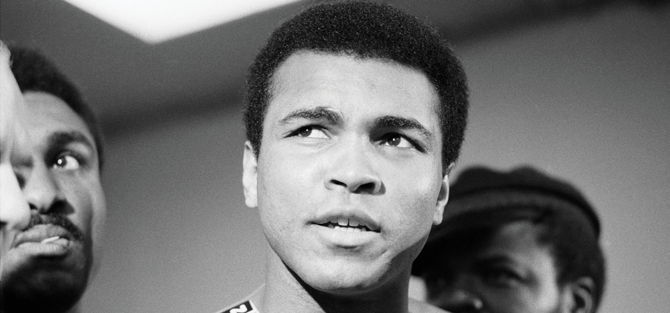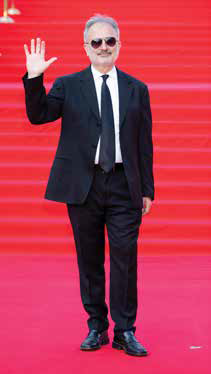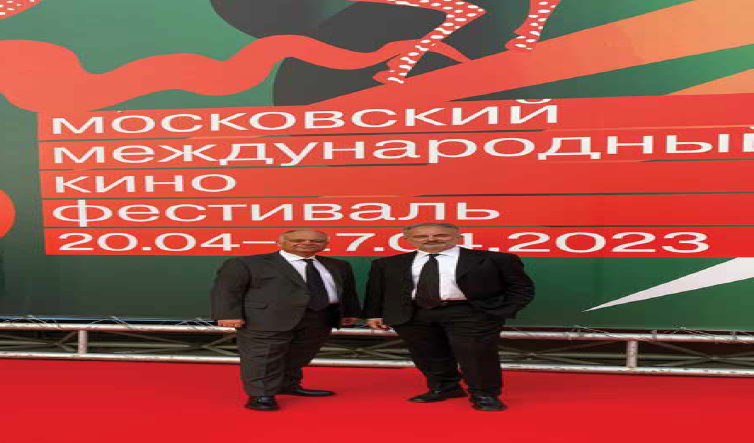
I was a businessman until 2004, that’s when I changed course to make my first film Chasing Che, which was based on Jon Lee Anderson’s biography of Che Guevara which I had just translated into Farsi. The project allowed me the leisure of doing two things I had always loved, translating books and making films!
Well, the long and short of it is that it came to me by chance! In my fi rst fi lm Chasing Che, which essentially came to existence on the editing table, I had shot scenes and interviews for the fi lm, but I had also taken very personal video selfi es intending to keep them for myself, as memoirs of my trips, but then while editing the fi lm, we decided that the crude way in which I had taken these videos were a suitable fi t for a personal style documentary, precisely because they were not intended for the fi lm and had come out so natural. And I just continued the same style, this time consciously, for my second documentary Ali Vs. Ali!
The experience of working with Farhadi was of course very thrilling for me, but at the time I had little concern about the subject matter because it was the director’s choice not to reveal the story to actors who had smaller supporting roles, therefore I had not read the script, pretty much until the fi lming sessions began. I guess it was his way of ensuring a more natural outcome!

Ali Vs. Ali fi rst came to me from memories of early morning events at home in Tehran, when Muhammad Ali’s fi ghts were broadcast live on Iranian TV, that had recently joined the World Satellite System. People across Iran watched these live events before sunrise, local time, cheering for Ali in private homes and even public Coffee houses. Recalling these memories, I set out on a quest to meet Muhammad Ali and travelled several times to The U.S, often accompanied by my Executive Producer Hamidreza Rofougaran and we fi lmed the whole odyssey!
The biggest challenge was of course trying to meet Muhammad Ali, who was by that time quite ill and lived alternately in three different States depending on the climate, but ultimately I found the challenging process fascinating and I think in essence it became an integral part of the documentary!
Actually this is something that is addressed in the fi lm because the side theme of the fi lm is Para-Social connections which is effectively the relationship between normal people and celebrities; In general I feel that the time for iconic celebrities of mythical proportions has passed, people have become increasingly closer to celebrity icons, given the intimate coverage of their lives on social media, which kind of takes away the mystery and makes them more human. Of course people will always look to these icons and become inspired by them, but I think that the relative proportion of that fascination with celebrity icons has drastically changed.
I don’t think the age of Pahlevans in the offi cial usage of the term has passed because there seems to be a certain sports criteria for becoming one, but in the iconic usage of the term, again since we no longer depend on folk tales and mysterious stories of Pahlevans, they have been humanized to a greater extent and so I think the same principle as above applies.
As I mentioned before, getting close to any icon is bound to humanize him/her, I had the same experience researching the life of Che Guevara. The difference in the case of Muhammad Ali being that he was more contemporary to my life and given the progress in motion pictures and the ample fi lm clips available online in recent decades, and considering his highly theatrical personality, I was able to get a closer notion of who he really was, nonetheless I still consider him a larger than life personality!
Well, the film premiered at the 42nd Paladino d’Oro Sport Film Festival in Palermo, Sicily which is the oldest Sport Film Festival in the world and won a Special Festival Prize. It went on to screen at the 45th Moscow International Film Festival which is also highly prestigious in the global festival scene. The fi lm has gone on to screen at numerous other festivals in the United States, Africa, South America etc… and has won three more prizes. It is still cruising festival circuits around the world as we speak.
Well, I made my fi rst fi lm with little to no fi lmmaking experience or knowledge, so as much as I value and respect the technical aspect of any artistic medium, I feel that if you have a captivating story to tell or a worthy message to get across, lack of prior experience or technicalities should not create a hindrance, my advice is to go for it!

Opening Hours:
24/7
Address: Tradex Mena International Consulting Group L.L.C-FZ 6th Floor, Business Center, The Meydan Hotel Grandstand, Meydan Road, Nad Al Sheba, Dubai, United Arab Emirates
+971 50 240 9735
Address: TRADEX INTERNATIONAL CONSULTING DANIŞMANLIK
itH. iHr. ve TiC. LTD. ŞTi.
Tomtom Mah. istiklal Cad. Beyoğlu iş Merkezi No.187 iç Kapr No: 4 Beyoğlu/iSTANBUL Beyoğlu V.D. 8591125255